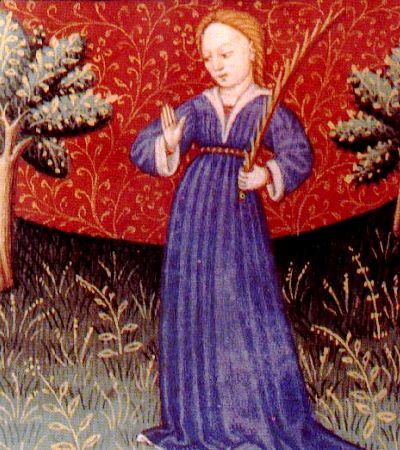
(Image of virgin-martyr taken from 15th century astrology handbook)
Virgo is the sixth astrological sign in the Zodiac. The sun transits this area on average between August 23 to September 23 each year. The planet said to be ruler of Virgo is Mercury and as portrayed in ancient Roman mythology, Mercury wasn’t one to sit still for long. This swift-footed god was a bundle of energy, both physically and mentally, and that pretty much sums up Virgo’s makeup
The constellation of Virgo is representative of many identities, all related to maidens, purity and fertility. She was originally associated to Dike, also known as Justice, daughter of Zeus and Themis, who was once the Mistress of All-Divine Order and Law prior to the Olympians. Dike initially lived among mankind but withdrew when they no longer upheld justice.
In Greek mythology, too, there is a similar theme. Persephone, daughter of Zeus and Demeter, had been abducted and taken to the underworld by Hades. In revenge her mother ruined the harvests, the earth became infertile and the people were starving. Zeus was forced to issue a decree stating that Persephone should spend only a short time each year in the underworld, and when she was released Demeter permitted Nature to resume its natural course.
Virgos, more than any other sign, were born to serve, and it gives them great joy. They are also tailor-made for the job, since they are industrious, methodical and efficient. The sense of duty borne by these folks is considerable, and it ensures that they will always work for the greater good. Virgos enjoy indulging their practical and logical side and poring over their projects to the nth degree. To say these folks are good at fact-finding almost understates the case. Those born under this sign are also able communicators and use their mental acuity to maximum advantage.



